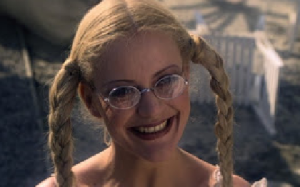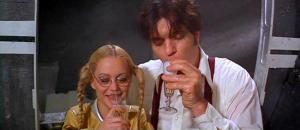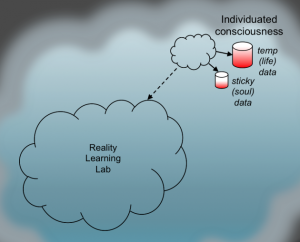Well, the universe is at it again, messing with our minds. Last year, I wrote a blog about the Berenstein Bears, which at that time was the most recent example of a Mandela Effect. The Mandela Effect seems to be the de facto name for the idea that something that many people remember from the past is somehow changed, or rewritten. It was named for former president of South Africa, Nelson Mandela, whom many people recall having died in a South African prison, which, history now tells us, is untrue. He died, according to all of the historical artifacts in our reality, of natural causes at the ripe old age of 95. I personally have a vague recollection of hearing some news about his demise in prison, but I can’t really place it.
That’s the thing about memories; they are completely fallible. When one remembers something, according to research, one is not remembering the original event, but rather the last time that you recalled that particular memory. As such, memories are subject to the “whisper down the lane” syndrome of changing slightly with every recollection. So, my vague Mandela recollection could easily have morphed from a confluence of news reports and “Mandela Effect” claims that I have heard over the years.
However, that does not at all explain why large numbers of people would have the same memory of something entirely fallacious. Which brings me back to the latest of this genre of anomalies: Did Dolly Have Braces?
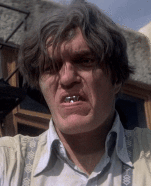 The 1979 James Bond film Moonraker featured a character named Jaws, a huge henchman with metal teeth played by the late Richard Kiel. In one scene, Jaws’ Brazilian cable car crashes and he is helped out of the rubble by Dolly, a bespectacled young blonde woman played by the French actress Blanche Ravalec. There is one of those movie moments that any Bond aficionado will recall, when Jaws first looks at Dolly and grins, bearing his mouthful of metal. She looks at him and grins, showing her mouthful of metal braces, and therefore, as the music swells, they fall instantly in love and walk off hand in hand. At least that’s the way we all remember it, myself included. The only problem is that if you watch the scene today, Dolly has no braces!
The 1979 James Bond film Moonraker featured a character named Jaws, a huge henchman with metal teeth played by the late Richard Kiel. In one scene, Jaws’ Brazilian cable car crashes and he is helped out of the rubble by Dolly, a bespectacled young blonde woman played by the French actress Blanche Ravalec. There is one of those movie moments that any Bond aficionado will recall, when Jaws first looks at Dolly and grins, bearing his mouthful of metal. She looks at him and grins, showing her mouthful of metal braces, and therefore, as the music swells, they fall instantly in love and walk off hand in hand. At least that’s the way we all remember it, myself included. The only problem is that if you watch the scene today, Dolly has no braces!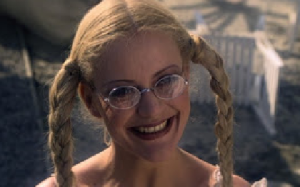
Those 70s era Bond movies were full of campy moments like this one. It was done to make the audience chuckle – in this case: “ahhh, despite their drastically different looks, they fall in love with each other, because of the braces connection” – and everyone laughs. That was the entire point. But now, the scene simply doesn’t even make sense any more. This is actually a key difference from the Berenstein Bears (I refuse to spell it any other way) Mandela effect. In that one, there was no real corroborating evidence that it ever was “Berenstein” with the exception of all of our fallible memories. In contrast, the Dolly, Jaws, and Braces scenario does have separate corroborating evidence that it was once as we remember it – the very point of the scene itself. In addition, I dug out a 2014 BBC obituary of Richard Kiel that references the movie describing Dolly as “a small, pig-tailed blonde with braces.” I’m sure the BBC checks their facts fairly carefully and wouldn’t typically be subject to mass delusion. Also, someone on Reddit managed to find an image somewhere where Dolly still appears to have braces, but you have to look closely:
So, here, it seems, the universe (ATTI, all that there is) is really messing with us, and didn’t even bother to clean up all of the artifacts.
First, a quick comment on the word “universe” – the underlying “real” universe is what i call ATTI (all that there is) to distinguish it from the physical universe that we know and love, but which is actually virtual. This virtual world is all a subjective experience of our true consciousness, which sits somewhere as part of ATTI. Hence ATTI can modify our virtual world, as could another conscious entity within ATTI (who perhaps has an evolved level of access). I’m not sure which of these is messing with the historical artifacts, but either is very possible. It would be analogous to being a programmer of a multi-player virtual reality fantasy game, and deciding to go back into the game and replace all of the pine trees with palm trees. The players would certainly notice, but they would think that there was a patch applied to the game for some reason and wouldn’t really give it a second though because they realize the game is virtual. The only reason the Mandela effect freaks us out when we discover one, like Dolly’s braces, is because we don’t realize our reality is virtual.
As I post this, it feels like I am documenting something significant. However, I realize that tomorrow, this post may be gone. Or perhaps the references that I listed to Dolly with braces will have disappeared, and along with them, the original sources. And closed-minded science snobs like Bill Nye and Neil deGrasse Tyson will say it always was that way.
Note: I sometimes make a few changes to these blog posts when I realize that I can be more clear about something. So if you notice something different the second time you read it, it probably isn’t because of the Mandela effect (but it could be ). Also, for those who haven’t read my original blog on this effect, I will repeat the explanation for Dolly, courtesy of digital consciousness theory:
). Also, for those who haven’t read my original blog on this effect, I will repeat the explanation for Dolly, courtesy of digital consciousness theory:
The flaw is in the assumption that “we” are all in the same reality. “We,” as has been discussed countless times in this blog and in my book, are experiencing a purely subjective experience. It is the high degree of consensus between each of us “conscious entities” that fools us into thinking that our reality is objective and deterministic. Physics experiments have proven beyond a reasonable doubt that it is not.
So what is going on?
My own theory, Digital Consciousness (fka “Programmed Reality”), has a much better, comprehensive, and perfectly consistent explanation (note: this has the same foundation as Tom Campbell’s theory, “My Big TOE”). See the figure below.
“We” are each a segment of organized information in “all that there is” (ATTI). Hence, we feel individual, but are connected to the whole. (No time to dive into how perfectly this syncs with virtually every spiritual experience throughout history, but you probably get it.) The “Reality Learning Lab” (RLL) (Campbell) is a different set of organized information within ATTI. The RLL is what we experience every day while conscious. (While meditating, or in deep sleep, we are connected elsewhere) It is where all of the artifacts representing Jaws and Dolly exist. It is where various “simulation” timelines run. The information that represents our memories is in three places:
- The “brain” part of the simulation. Think of this as our cache.
- The temporary part of our soul’s record (or use the term “spirit”, “essence”, “consciousness”, “Being”, or whatever you prefer – words don’t matter), which we lose when we die. This is the stuff our “brain” has full access to, especially when our minds are quiet.
- The permanent part of our soul’s record; what we retain from life to life, what we are here to evolve and improve, what in turn contributes to the inexorable evolution of ATTI. Values and morality are here. Irrelevant details like whether or not Dolly had braces don’t belong.
For some reason, ATTI decided that it made sense to remove Dolly’s braces in all of the artifacts of our reality (DVDs, YouTube clips, etc.) But, for some reason, the consciousness data stores did not get rewritten when that happened, and so we still have long-term recollection of Dolly with braces.
Why? ATTI just messing with us? Random experiment? Glitch?
Maybe ATTI is giving us subtle hints that it exists, that “we” are permanent, so that we use the information to correct our path?
We can’t know. ATTI is way beyond our comprehension.
